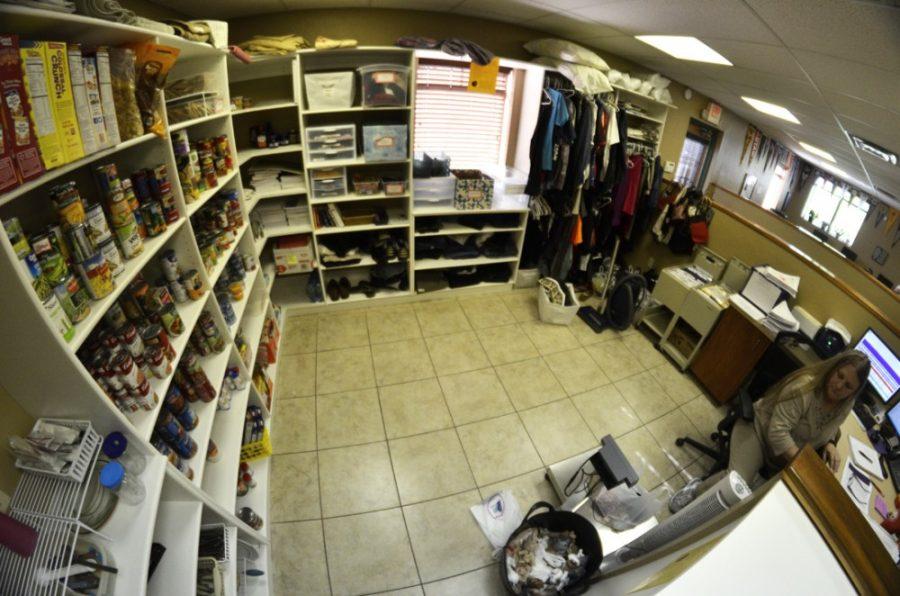It is often easy to forget the things we take for granted in our lives: having food, shelter, being able to attend high school. For many Tucson teens, those are luxuries they cannot afford. With nearly one-third of adolescents in Tucson living in poverty, teens in Pima county are the most prone to dropping out of school. Arizona has one of the highest high-school drop-out rates in the country, ranking at No. 4 in the nation for teen drop-outs.
For homeless youth, attending school can be the last thing on their mind. When just finding a home to sleep in is a daily struggle, homeless youth are most likely not to graduate high school. Youth On Their Own, a local organization, is working to change that. YOTO provides basic living needs for teens in Tucson that have difficult home lives, are living in poverty, are homeless or are in foster care. The goal? To help these youth graduate high school and pursue a better life by attaining higher education.
“Our program is unique in that we serve these kids, but we are first and foremost the dropout prevention program,” said Marissa Cassellius, grants manager at YOTO. “Youth On their Own is focused on helping this demographic stay in school by helping meet their basic needs.”
YOTO does this by first identifying at-risk students through volunteer school liaisons, employees of the student’s school that volunteer with YOTO. Then, student advocates work with the students to learn about their unique situation and establish a plan to help them stay on track for graduation.
YOTO is constantly in contact with the student’s schools, as well as other organizations, to help students get services that they themselves may not necessarily provide, such as housing, emotional therapy and college or career counseling.
Alex McArthur, student advocate at YOTO and the point of contact for students, said she sees the positive benefits of YOTO directly in students.
“The biggest thing that a lot of our kids are lacking is just the day-to-day support; when they go home at night, they don’t really have somebody checking in on them asking them how their day was, making sure they get their homework done, making sure they even wake up and get to school in the morning on time,” she said. “So we hear often that YOTO was that extra layer of support pushing them to try their hardest, to go to school every day and try as hard as they can and get to graduation. These are things that a lot of people take for granted and don’t even realize how valuable they are until they don’t have it. That’s what the kids appreciate the most, just that little extra push.”
And indeed, YOTO has helped thousands of teens graduate pushing students to excel despite their circumstances. Despite being founded less than 30 years ago, YOTO has helped over 15,000 Tucson students stay in school and focus on graduation.
YOTO provides a wealth of services for homeless and at-risk teens. It provides food, clothes, hygiene products, bus passes and school supplies via a mini-mall in its office, all of which is free for students in the YOTO program. For fresh food and things the mini-mart doesn’t hold, students get gift cards. YOTO also delivers items to students all over Tucson because many students have no way to get transportation to the YOTO office. YOTO also provides financial assistance to students.
Students receive a weekly stipend of $70 to $140 depending on their living situation, grades and attendance at school. It also provides emergency financial assistance for homeless teens completely alone, such as for rent and electric bills. Finally, if students have no financial assistance from family, YOTO pays for extra costs associated with school.
McArthur and Cassellius stressed both the social and economic impact of helping at-risk students graduate high school.
“Arizona ranks fourth in the country for high school dropouts,” McArthur said. “There are over 5,600 homeless students in Pima country. When 75 percent of Arizona prison inmates are high school dropouts, it is crucial to invest now in these kids. It costs $58,000 for local and state governments to support one high school dropout for one year.”
If you want to volunteer for YOTO or donate to the organization, visit its website at www.yoto.org.
“If we have a more educated community, it affects us all, it affects the entire community living [for the better],” Cassellius said.
_______________
Follow Lior Attias on Twitter.









